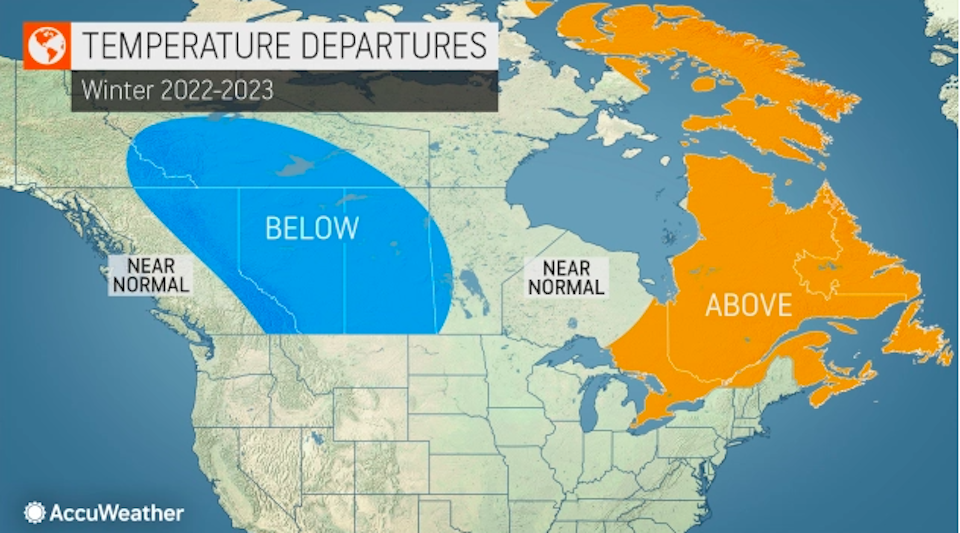British Columbians hoping to avoid an overly cold winter might be in luck this year, according to a new report.
AccuWeather has released its 2022/2023 Canada winter forecast and it is calling for another La Niña season.
La Niña, "the girl" in Spanish, names the "appearance of cooler than normal waters" in the equatorial Pacific Ocean, according to the Canadian government; it is the opposite of an El Niño weather event.
In a recent update, the National Oceanic and Atmospheric Administration (NOAA) called for a 75 per cent chance that La Niña will be present this winter and won't change to a "neutral" weather pattern until about February.
But According to AccuWeather Senior Meteorologist Brett Anderson, not all parts of the country will feel the effects of the weather phenomenon in the same way.
Metro Vancouver weather forecast for 2022/2023 winter season
While an amplified polar jet stream will bring "cold air and frequent storms" to Western Canada, a slight change in the wind's direction "could enhance or counter [La Niña's] impacts."
Typically, the westerly winds associated with the weather pattern bring "copious amounts of Pacific moisture and mild air" to B.C.
"However, the latest information suggests that the steering winds will be coming from more a west-northwest and northwest direction this winter," Anderson said. "Thus, we are leaning toward a winter with near-normal temperatures and snow [and] rain for much of central and southern British Columbia."
Northern B.C. and southeast through the Canadian Rockies will see the heaviest snowfall, compared to normal. This year's season is also expected to bring champagne powder for alpine enthusiasts, with "excellent" ski conditions forecast.
On the other side of the country, AccuWeather notes that Toronto and Montreal may see below-average amounts of snowfall.




